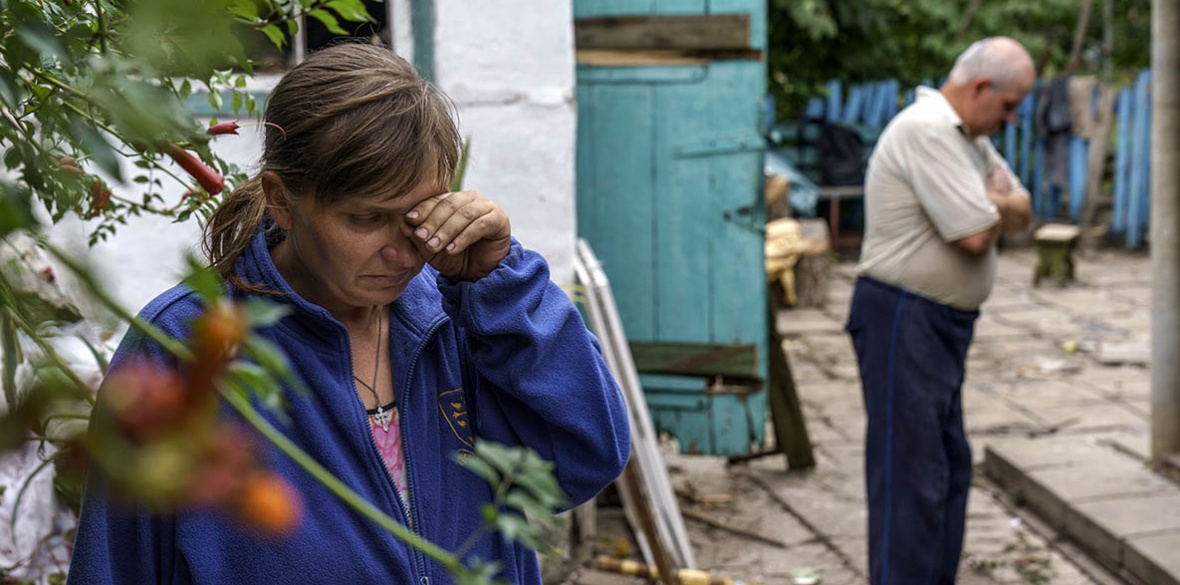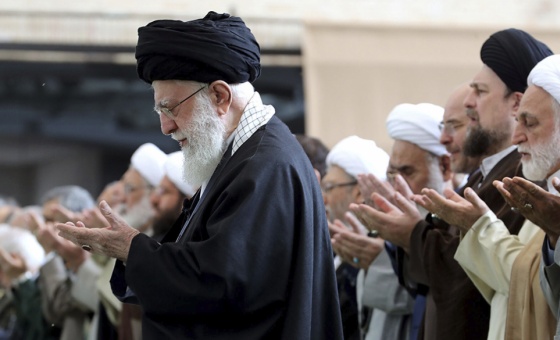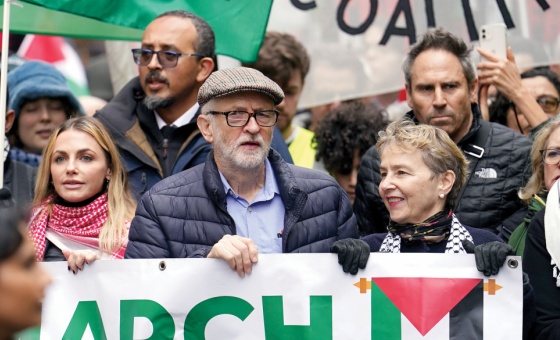This is the last article you can read this month
You can read more article this month
You can read more articles this month
Sorry your limit is up for this month
Reset on:
Please help support the Morning Star by subscribing here
THE peace movement is facing a number of important challenges at the present time.
Two of these challenges are represented by the increasing moves towards a military role for the EU and the continued support of banks and public-sector pension funds for nuclear weapons production.
This column is a modest attempt to highlight why these two developments represent threats to a peaceful world and make some suggestions about how they can effectively be responded to.
In March 2021 there was a worrying development in the European Union’s military role.
In what could probably be described as a watershed moment for EU defence policy, it was agreed by EU foreign ministers to create a fund to allow the EU to send aid and military equipment all over the world.
The money for these arms and military equipment comes under a so-called European Peace Facility budget heading. This fund is financed through contributions from member states. It is intended that €5 billion will be available in the fund to be spent in the years up to 2027.
The measure met stinging criticism from Hannah Neumann MEP, who is a foreign policy spokesperson for the Greens in the European Parliament.
She said: “This so-called European Peace Facility will allow the EU to export lethal weapons around the globe, including to conflict regions.”
The funds being made available to this new budget heading are being kept separate from the EU’s main seven-year budget to get round the bloc’s rules against spending on weapons.
At the end of February 2022 it was being reported that through this so-called Peace Facility the European Union will provide Ukraine with €500 million in arms and aid.
According to European Union foreign policy chief Josep Burrell, €450m of the money being provided to Ukraine will be for lethal arms, while the much smaller amount of €50m will be provided for non-lethal supplies such as fuel and protective equipment.
Many supporters of the EU would argue that it is an organisation that can provide a path to a more peaceful world through promoting trade and cultural links.
However the creation of this so-called “Peace Facility” seems to be a cover for increased involvement of the bloc in a military role.
As organisations such as Oxfam have warned, it could also risk fuelling conflict and human rights abuses around the world.
There is now a case for looking to other organisations such as the Organisation for Security and Co-operation in Europe or OSCE to provide a way forward to a more peaceful world.
The OSCE is the largest security-oriented organisation in the world and has observer status at the UN.
Its mandate includes involvement in issues such as promoting arms control, human rights and freedom of the press. It can also play a role in supervising fair and free elections.
The organisation employs 3,500 people and has its secretariat in Vienna. It has 57 participating states including both Russia and the US.
A progressive and sensible option for Scotland and the UK in these post-Brexit times might be to support and help strengthen the role of the OSCE.
It would provide a refreshing alternative to being involved in the increasingly military direction of the EU.
Perhaps one of the tasks which could be remitted to the OSCE could be to set up a Europe-wide consultation to begin the difficult task of drawing up a new common security framework for the whole of Europe.
This might seem unlikely given the current unimaginative and narrow positions being adopted by political parties across Europe in relation to building a peaceful and stable world. However we frankly have to start somewhere.
The tragic war in Ukraine and the continuing conflicts in places such as Palestine, Yemen and Western Sahara make the world a depressing place.
According to Amnesty International there at least 26 million refugees in the world fleeing war, climate change and poverty.
This is why it is necessary for the peace movement not only to campaign on issues such as nuclear weapons and increased military spending — it must provide ideas for resolving conflicts without recourse to violence and war.
Two organisations involved in that task are the Movement for Abolition of War, or MAW for short, and the Don’t Bank on the Bomb Scotland Network.
MAW, which was founded in 2001 and whose first chair was legendary peace campaigner Bruce Kent, says that security for people should be understood in holistic terms of human and planetary wellbeing.
The organisation seeks to persuade governments and organisations to diversify from arms manufacture and military spending towards peaceful technologies and away from the use of wars to resolve conflicts and tensions between nations.
The organisation is currently promoting a new way of looking at security not based on military expenditure.
To assist in this work, MAW supports Rethinking Security, which is itself a network of organisations, academics and activists working together for security based on justice, co-operation and sustainability.
Another important organisation in the struggle against excessive military spending is the Don’t Bank on the Bomb Scotland Network.
The network links together organisations and individuals to campaign for Scottish financial institutions and public bodies to divest from companies that are involved in the production and development of nuclear weapons.
The network argues that the resources of these institutions and public bodies should be used instead for socially useful purposes such as the development of more affordable housing and supporting clean energy projects.
Research by Don’t Bank on the Bomb Scotland shows that the NatWest banking group, which includes the Royal Bank of Scotland, had in early 2021 around £2 billion invested in 15 companies involved in the production of nuclear weapons.
Recently a day of action involving protests outside branches of the bank in Glasgow and Edinburgh took place.
These protests are set to be repeated later in the year to further expose the bank’s involvement in supporting weapons of mass destruction.
NatWest was a founding signatory to the UN Principles of Responsible Banking. This document says that signatories should support a society founded on human dignity, equality and the sustainable use of natural resources.
It seems however that NatWest Group is prepared to undermine these sentiments by continued investments in nuclear weapons production.
The Don’t Bank on the Bomb Scotland Network also does important work in campaigning against public-sector pension funds giving support to companies involved in nuclear weapons production.
It is regrettable that figures from 2020 show that Scotland’s two largest local government pension funds hold substantial shares in companies linked to nuclear weapons.
In the case of Lothian pension fund, this came to £126 million spread over five companies. The Strathclyde fund came a close second, holding shares worth £120m in 16 companies.
It seems to me in these troubling times that the peace movement and its component parts, such as the Movement for the Abolition of War and the Don’t Bank on the Bomb Scotland Network, are needed more than ever.
It is also time for more politicians to follow the example of Jeremy Corbyn and start making deep and meaningful links with the peace movement.
Arthur West is former chair of Scottish CND.
For more information visit www.dontbankonthebomb.com and abolishwar.net.











